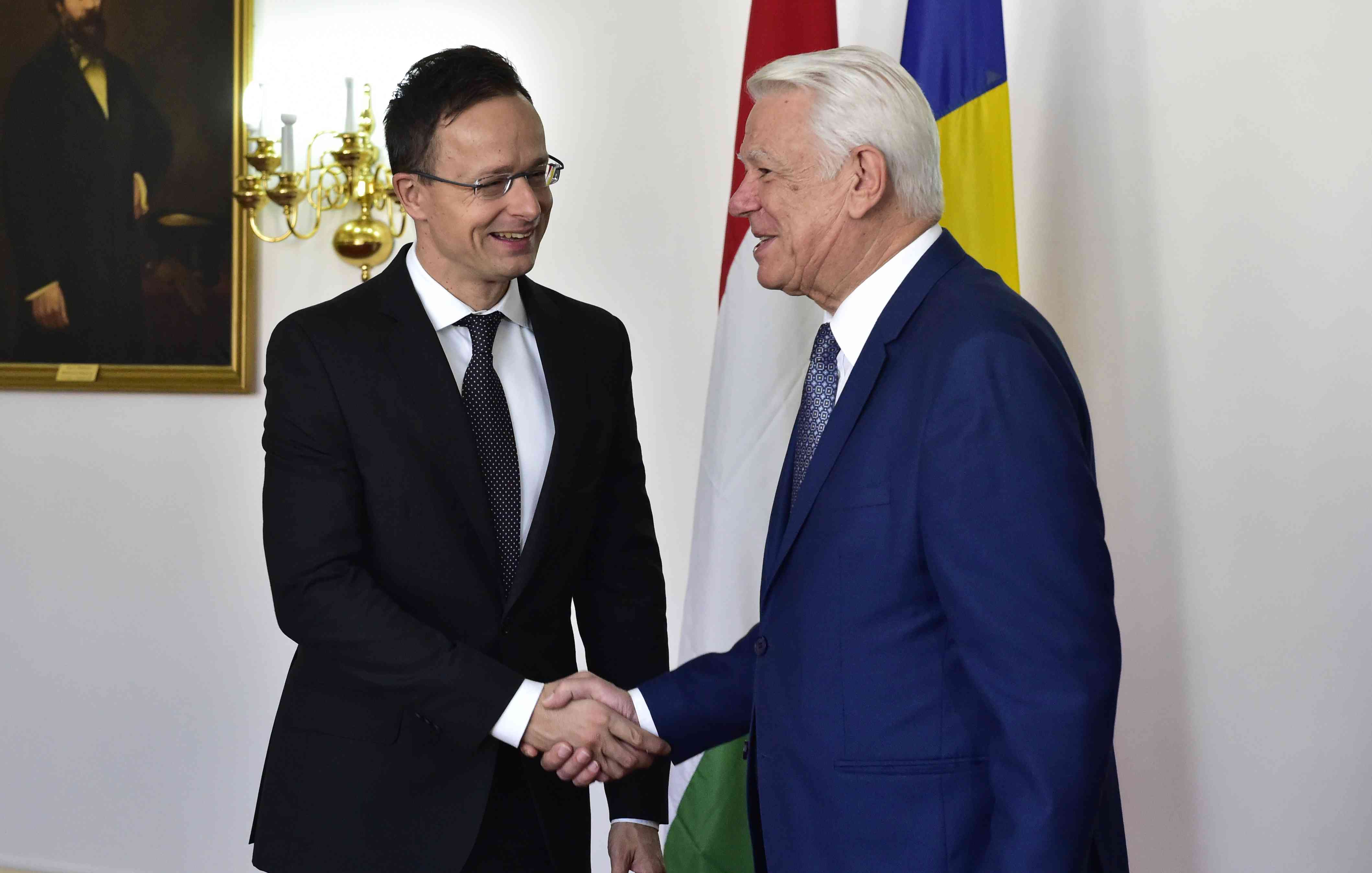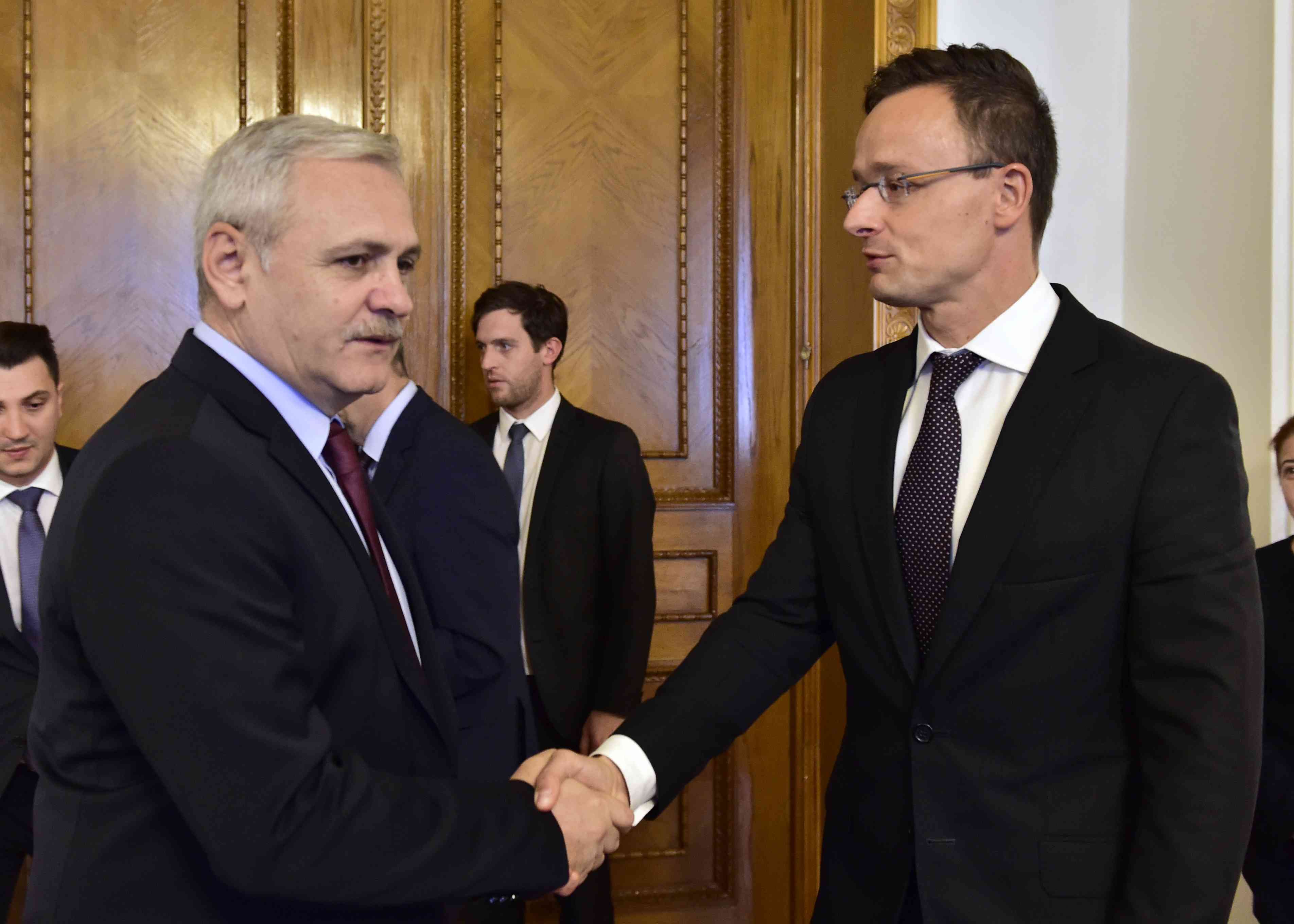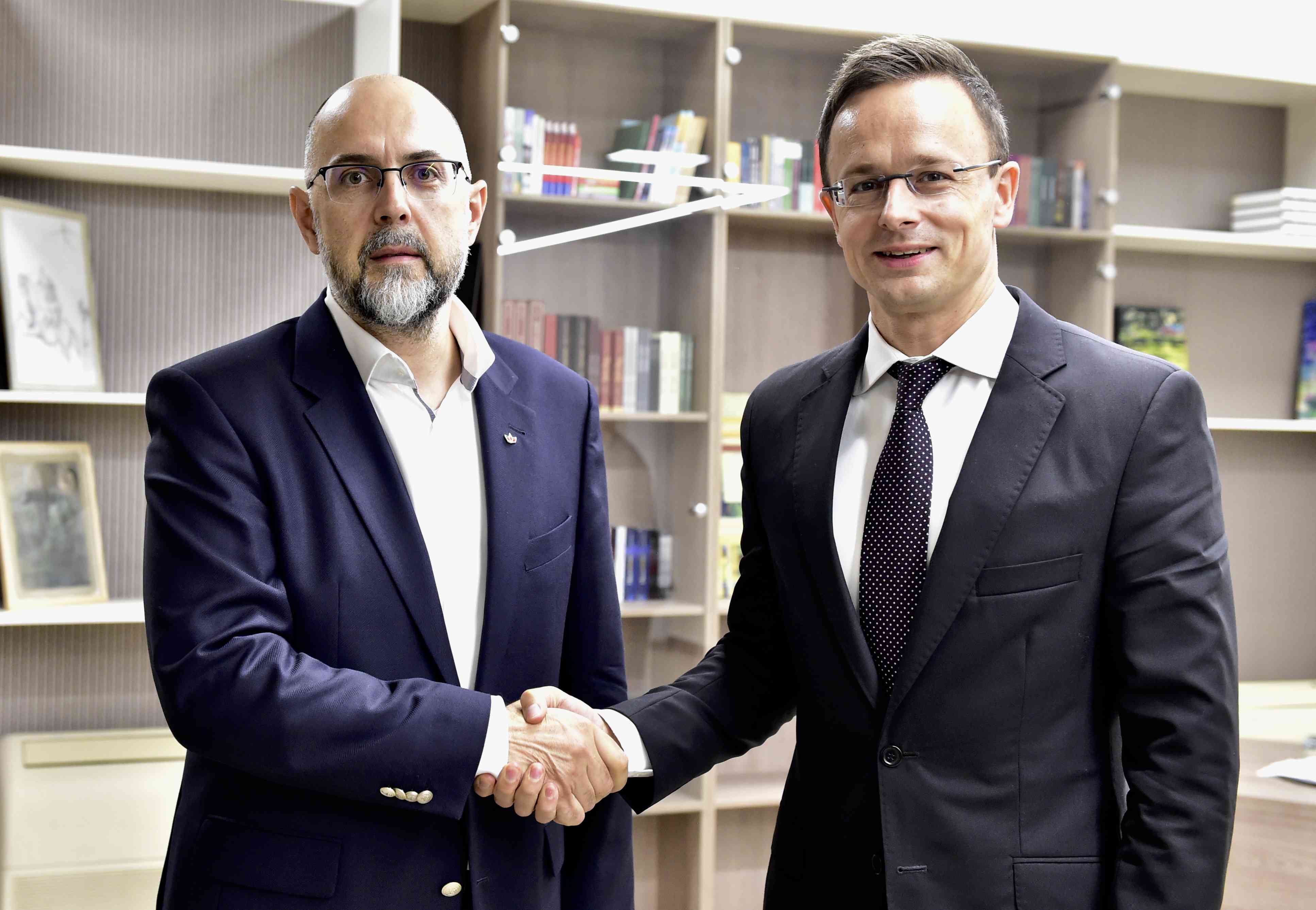Minister of Foreign Affairs and Trade Péter Szijjártó payed and an official visit to Romania, during which he held discussions both in Bucharest and Cluj-Napoca. Following the meeting with his Romanian counterpart Foreign Minister Teodor Melescanu, Minister Szijjártó has stated, it is in the clear interests of both Hungary and Hungarians living in Romania for there to be good relations between the two countries, and both the Hungarian and Romanian party have done much to facilitate this recently.
During the meeting with the leader of the Romanian diplomacy the Parties have noted that, owing to the infrastructure development projects ongoing on both the Hungarian and Romanian sides of the border, from next year there will exist the physical possibility of transporting 1.75 billion cubic metres of natural gas towards Hungary each year, increasing to 4.4 billion cubic metres from 2022. Minister Szijjártó stated, that Hungary hopes that the American and Austrian-Romanian gas industry companies come to an early decision on the extraction of natural gas from the gas fields found under the Black Sea, with which we will be able to conclude the required contracts at the earliest opportunity.
The two ministers agreed to permanently open the border crossing stations at Dombegyház and Elek, which are currently only open one day-a-week, in the interests of making life easier for the local communities in addition to which the Hungarian M4 and Romanian A3 motorways will be connected by the end of 2022, after which Oradea (Nagyvárad) will also be accessible from Hungary by motorway. Preparations for the construction of the high-speed railway line connecting Budapest and Bucharest via Cluj-Napoca (Kolozsvár) are also moving ahead well, and the Hungarian party has set aside one billion forints for the preparation of the feasibility study.
The ministers stated that we also have a similar approach to the situation that has developed in Ukraine with relation to minorities. Ukraine is violating the rights of minorities as set down in international law; both the Hungarian and Romanian minorities have been stripped of several rights relating to language use and education, and although we are following different strategies, we agree that this is an infringement of international law, which must be put and end to as soon as possible”. Mr. Szijjártó thanked Teodor Melescanu for the fact that MEP’s from his liberal ALDE party voted against the Sargentini Report and stood up for Hungary.
With regards to the Romanian centenary, the one-hundredth anniversary of the session of the Romanian National Assembly in Alba Iulia in 1918, Mr. Szijjártó said: the subject always pops up, and on his part he drew the attention of the Romania Foreign Minister to the importance of mutual respect, on which the Hungarian Government otherwise usually bases its foreign policy. “It must be recognised that certain historical dates have different meanings to different nations and countries. A historical date can mean joy on one side and grief on the other. This is something we must respect, and we must not force the other to feel the same way. I asked that we respect each other’s feelings and refrain from forcing any position onto the other”, the Minister of Foreign Affairs and Trade said.
During his visit to Bucharest, Mr. Szijjártó had a meeting with the Chairman of the Social Democratic party that forms the backbone of the Bucharest government, Speaker of Parliament Liviu Dragnea. In the afternoon, Mr. Szijjártó had a meeting in Cluj-Napoca with Democratic Alliance of Hungarians in Romania (RMDSZ) Chairman Hunor Kelemen, also with members of the Transylvanian Hungarian business community, and the representatives of the Hungarian Historic Churches of Transylvania.





